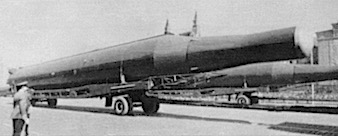The Trudeau Papers
Ian Adams
Toronto: McClelland & Stewart, 1971
Thucydides wrote that Themistocles' greatness lay in the fact that he realized Athens was not immortal. I think we have to realize that Canada is not immortal; but, if it is going to go, let it go with a bang rather than a whimper.
— Pierre Elliott Trudeau, 30 March 1988
Beginning our sesquicentennial year with a novel imaging Canada's demise might be an odd choice were it not for the deafening roar heard from south of our border. How long before the first major fuck-up of the Trump presidency? I'm betting on this month.
The fuck-up described in this debut novel is monumental. The CIA manages to recruit a brilliant Red Army computer analyst, tasks him with testing the security of the Soviet's "fail-safe computer firing program", and then forgets he ever existed.
Bureaucracy is to blame, which isn't to say that there aren't benefits to be had.
Two SS-9s head for American bases in Montana and North Dakota, and the Soviets can do nothing to stop them. Their Premier alerts the President of the United States of the situation, but is unable to convince him that it is all a mistake. Fortunately,
Trump the President knows nothing of the Bible and so cannot recall the quotation used in the nuclear code ("Unto God would I commit my cause." – Job 5:8). Unfortunately – for Canada – the U.S. Strategic Missile Command manages to intercept both missiles, resulting in nuclear explosions above Edmonton and southern Saskatchewan.
One million people die.
Within two weeks, the number triples. It grows exponentially as children succumb to leukaemia, their elders shed skin and hair, and Canadians of all ages are sprayed repeatedly with Agent Orange.
After the Prime Minister's plane goes down on a return flight from Washington, the United States takes advantage of misplaced Soviet guilt. Its military moves north on the pretence of securing American-owned industry, while right-wing vigilantes with ties to the CIA take to the streets. Bookstore owners are beaten, and left-leaning student leaders are strung up on the rafters of Varsity Stadium.
Were it not so dense, I'd consider this 108-page "Novel by Ian Adams" a novella; were it not so complex, I might be dismissive.
The Trudeau Papers is a remarkable and unusual novel. Its title is explained by narrator Alan Jarvis, a former journalist who has been entrusted by fellow members of the resistance to record what has happened since the two SS-9s exploded:
The name seemed to evoke a collective sense of grim irony. Personally, I think there title is unimportant, considering the enormity of what has taken place, and how much of it has been documented. The rather vague explanation for the choice was that as one of the last democratically elected prime ministers, his name symbolized the end of a nation. So be it.
The "vague explanation" works well. Jarvis himself was once a former CIA operative – and it could be that he is still. Nothing in
The Trudeau Papers is cut and dry; nothing is black and white. I came to trust him, but not so much that I won't understand your distrust.
The Trudeau Papers takes place sometime after 1975... but when?
And so, on this second day of our sesquicentennial year, a new question arises: Which Trudeau?
Addendum: This post is the second – after
my review of Richard Rohmer's Triad – to include the Trudeau quote above. Again, is it not incredible that we once had a prime minister who could speak about Thucydides on Themistocles?
Object and access: A slim novel in orange boards with uncredited dust-jacket, I bought my copy twenty-seven years ago at
S.W. Welch in Montreal. Price: $1.00. Eighteen years earlier, this very same copy was a Christmas gift from journalist Peter C. Newman to John Payne. I'm guessing that this is the same John Payne who once served as an adviser to future PM John Turner (and not the man who starred opposite
Maureen O'Hara in Miracle on 34th Street).
It appears there was no a second printing. Remarkably, there has never been a paperback edition.
Ranging at prices between US$3.48 and $17.54, eight copies are listed for sale online. Condition is not a factor.












